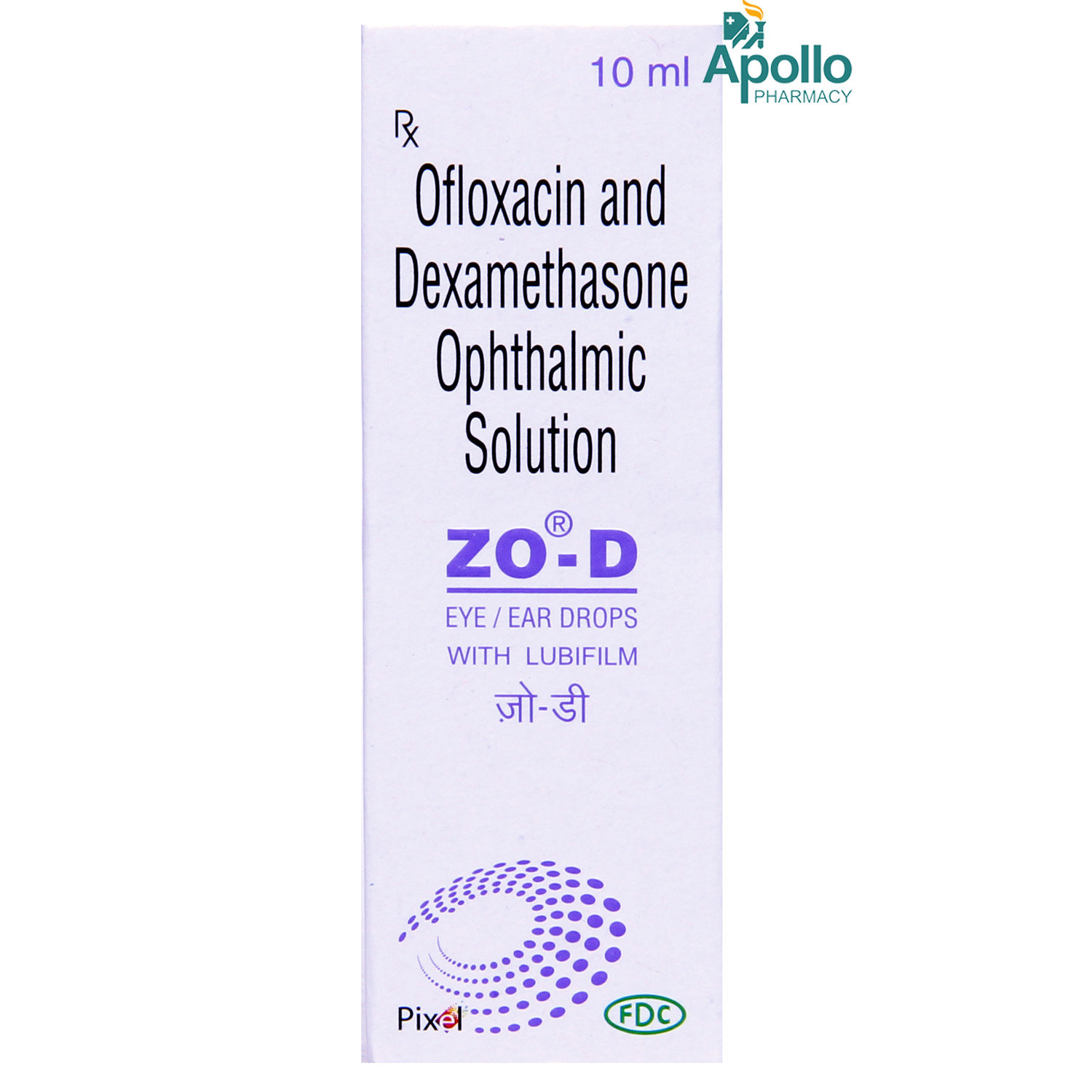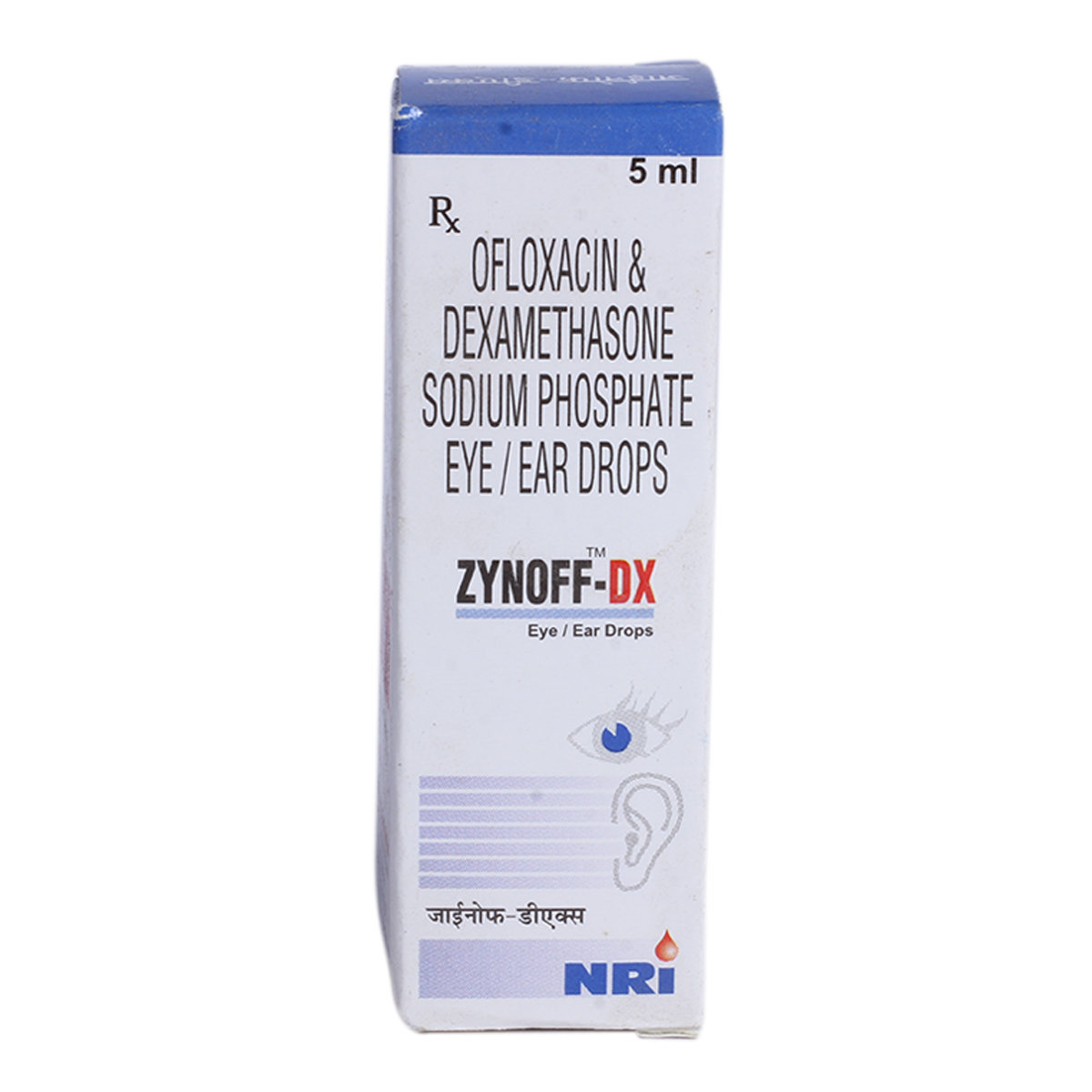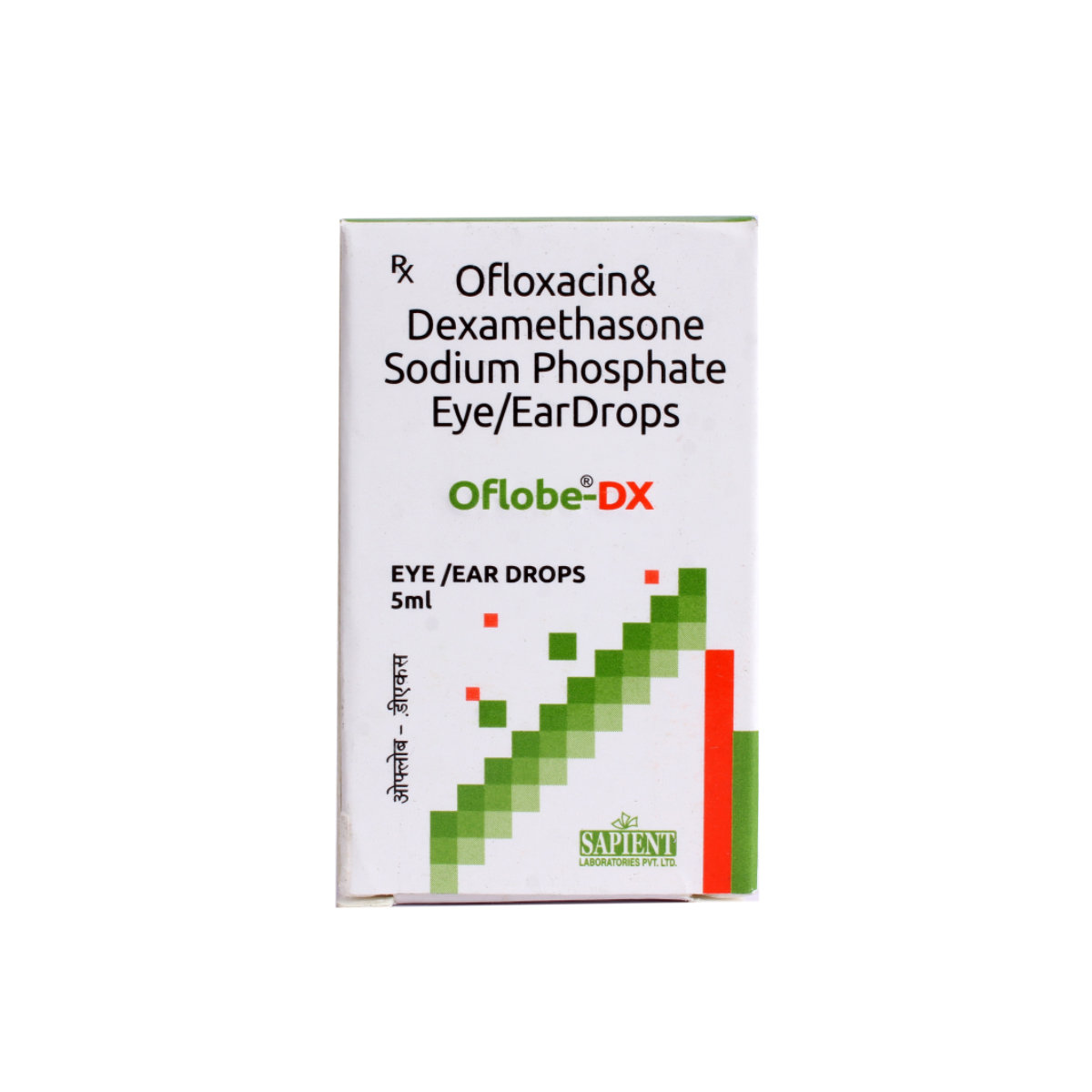Oxop D Eye Drops 5 ml
MRP ₹21
(Inclusive of all Taxes)
₹3.1 Cashback (15%)
Provide Delivery Location
Online payment accepted
 Prescription drug
Prescription drugWhats That
Composition :
Manufacturer/Marketer :
Consume Type :
Expires on or after :
Return Policy :
About Oxop D Eye Drops 5 ml
Oxop D Eye Drops 5 ml is a combination of 'corticosteroid and antibiotic', primarily used to treat bacterial eye infections. Bacterial eye infection occurs when bacteria invade any part of the eyeball or its surrounding tissues, including the cornea (clear front surface of the eye) and the conjunctiva (thin membrane lining the outer eye and inner eyelids).
Oxop D Eye Drops 5 ml contains Dexamethasone and Ofloxacin. Dexamethasone belongs to the class of corticosteroids. It blocks the production of prostaglandins (chemical messengers) that make the affected area red, swollen, and itchy. Ofloxacin belongs to a class of drugs called quinolone antibiotics. It is bactericidal (kills bacteria) and works by inhibiting bacterial DNA gyrase, an enzyme required for the replication, transcription, and repair of the DNA.
Use Oxop D Eye Drops 5 ml in the dose and duration prescribed by your doctor based on your medical condition. Oxop D Eye Drops 5 ml is generally safe to use. However, some may experience side effects like eye discomfort, eye irritation, burning/stinging sensation, dryness, redness, and itching. Most of these side effects of Oxop D Eye Drops 5 ml do not require medical attention and gradually resolve over time. If these side effects persist longer, please consult your doctor.
If you are allergic to Oxop D Eye Drops 5 ml or any other medicines, please tell your doctor. Inform your doctor if you have any liver or kidney diseases, fungal infections, or heart problems before using Oxop D Eye Drops 5 ml. Pregnant and breastfeeding women should use Oxop D Eye Drops 5 ml with proper consultation and caution. Drive or operate machinery only when you do not experience any discomfort in the eyes after the usage of eye drops.
Uses of Oxop D Eye Drops 5 ml
Directions for Use
Key Benefits
Oxop D Eye Drops 5 ml contains Dexamethasone and Ofloxacin. Dexamethasone is a corticosteroid and blocks prostaglandins' production (chemical messengers) that make the affected area red, swollen and itchy. Ofloxacin is a quinolone antibiotic that inhibits bacterial DNA gyrase, an enzyme required for DNA replication, transcription, and repair. Thus Oxop D Eye Drops 5 ml treats bacterial eye infections.
Storage
Drug Warnings
Brief your medical history to the doctor if you are allergic to Oxop D Eye Drops 5 ml or any of its components. Please let your doctor know if you have a history of liver or kidney diseases, heart problems, glaucoma, cataracts, recent eye surgery, viral diseases of the conjunctiva and cornea, severe nearsightedness, diabetes, or fungal infections of the eye. Please consult your doctor if you are pregnant, planning pregnancy or breastfeeding before using Oxop D Eye Drops 5 ml. Avoid driving or operating machines since the administration of Oxop D Eye Drops 5 ml cause blurred vision for a while after using. Oxop D Eye Drops 5 ml should be used for children only when advised by a doctor.
Diet & Lifestyle Advise
- Manage stress, eat healthily, drink plenty of water, exercise regularly, and get plenty of sleep.
- Eat food rich in antioxidants such as berries, spinach, kidney beans, dark chocolate, etc.
- Know your allergy triggers, such as pollen, dust and other factors.
- Do not rub your eyes even though some ophthalmic drugs make your eye itchy.
- If you wear contact lenses: Clean and replace contact lenses more often. Never share contact lenses. Always remember to wash your hands before inserting and after removing the contact lens.
- Avoid staring at digital screens for longer durations. Rest your eyes every 20 minutes.
- Avoid or limit the intake of alcohol and caffeine.
Side Effects of Oxop D Eye Drops 5 ml
- Eye discomfort
- Eye irritation
- Burning/stinging sensation
- Dryness
- Redness
- Itching
Habit Forming
Therapeutic Class
All Substitutes & Brand Comparisons
RX
Out of StockOfrex D Eye Drop
Zydus Cadila
₹7.21
(₹0.65/ 1ml)
82% CHEAPERRX
Out of StockOculone D Eye Drop
Yash Pharma Laboratories Pvt Ltd
₹11.5
(₹1.04/ 1ml)
72% CHEAPERRX
Out of StockProxo Eye Drop
₹20
(₹1.8/ 1ml)
52% CHEAPER
Author Details
We provide you with authentic, trustworthy and relevant information
FAQs
Drug-Drug Interactions Checker List
- PHENYTOIN
- PHENOBARBITONE
- EPHEDRINE
- RITONAVIR
- COBICISTAT
- RIFAMPICIN
Disease/Condition Glossary
Bacterial eye infection: A bacterial eye infection occurs when bacteria invade any part of the eyeball or surrounding tissues, including the cornea (clear front surface of the eye) and the conjunctiva (thin membrane lining the outer eye inner eyelids). A bacterial eye infection symptoms include red eyes, pain, swelling of the eyes, watery eyes, itching, and blurry vision. Some very common eye infections are conjunctivitis (the inflammation and irritation of the eye's mucous membrane (conjunctiva), stye (bump on the eyelid), uveitis (inflammation of the uvea, middle layer of the eye), marginal keratitis (inflammation of the cornea), and blepharitis (inflammation of the eyelids).

Have a query?
Alcohol
Safe if prescribed
Limit alcohol consumption while on treatment with Oxop D Eye Drops 5 ml.
Pregnancy
Consult your doctor
There is limited data on how Oxop D Eye Drops 5 ml affects pregnancy. Please consult your doctor if you are pregnant or planning pregnancy before using Oxop D Eye Drops 5 ml.
Breast Feeding
Consult your doctor
It is not known if Oxop D Eye Drops 5 ml affects breastfeeding. Please consult your doctor before using Oxop D Eye Drops 5 ml if you are a breastfeeding mother.
Driving
Safe if prescribed
Oxop D Eye Drops 5 ml may cause side effects like temporary blurred vision, affecting your driving ability. Hence, do not drive or operate machinery in such cases. Drive only when you are alert and have clear vision.
Liver
Consult your doctor
Let your doctor know if you have any history of liver diseases before starting treatment with Oxop D Eye Drops 5 ml.
Kidney
Consult your doctor
Let your doctor know if you have any history of kidney diseases before starting the treatment with Oxop D Eye Drops 5 ml.
Children
Safe if prescribed
Oxop D Eye Drops 5 ml should be used for children only when recommended by a doctor.











